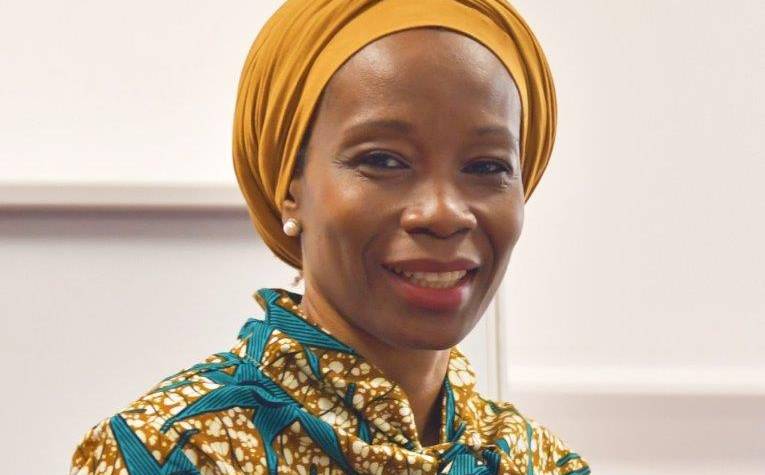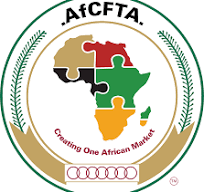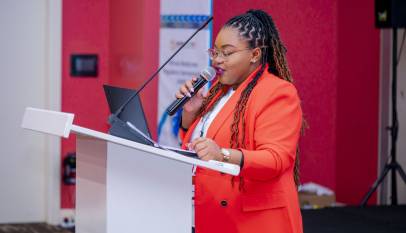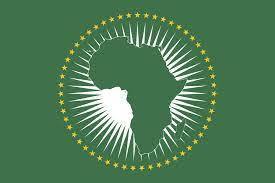INTERVIEW | How we can mainstream African women in climate action agenda — Comfort Lamptey
In commemoration of International Women’s Day 2022, Comfort Lamptey, UN Women’s representative to Nigeria and the Economic Community of West African States (ECOWAS), talks about the impact of the climate crisis on women and girls and their role in climate action.

Newspage: Can you help unpack the UN Women’s theme for International Women’s Day 2022 (IWD2022)?
Lamptey: Our theme for International Women’s Day 2022 is ‘Gender equality today for a sustainable tomorrow,’ with emphasis on climate action for women and by women. This theme is relevant because gender inequality is one of the greatest challenges of our time; yet another major crisis is climate change. Therefore, during this year’s Women’s Day, we are emphasizing the need to collectively address these two crises, globally.
Notably, there’s a growing focus on climate change in the political as well as public spheres, reinforced by the 26th UN Climate Change Conference (COP26) held in 2021, which opened up the space for gender inclusion in the climate discourse. The UN Women theme for IWD 2022 also seeks to recognize the contribution of women and girls at the cutting edge of global climate crisis solutions across their communities towards building a more sustainable future for all.
In Nigeria, the gender dynamics of climate change are still not very well understood hence women are very much absent in climate change policymaking and practice. It’s noteworthy that Nigeria has a female state minister for environment, but there’s still a lot to do in terms of building awareness and understanding of the gender dynamics of climate change and making sure policymakers understand this as a priority.
So, this March is dedicated to building new perceptions on the relationship between women, environment, and climate change as well as countering the narrative undermining women’s role and leadership potential in addressing climate change. We look forward to creating awareness on the issue by showcasing what women are doing, despite their exclusion in decision-making on climate change. This is also an opportunity for a call to action for greater investment in addressing gender issues and climate change, simultaneously.
Newspage: What is the link between climate change and gender; why is climate action by women important?
Lamptey: There is a limited understanding of the link between climate change and gender, hence you often hear women being talked about as victims of climate change – rather than agents of climate solutions. This has to change! Climate change is a burning crisis and women have a crucial role to play in climate action and mitigation. The more women we have in policy spaces addressing climate change, the better results we will see in Africa.
It is evident that when women are part of public policymaking they bring to the table issues and decisions that are more inclusive. We are therefore working to get more women into politics because we believe they will be championing important causes such as climate change. So, gender and climate change are interlinked hence we will continue to support both agendas going forward.
Newspage: Climate change affects women everywhere. How serious are the negative impacts of climate change on women and girls?
Lamptey: There are many ways to look at how climate change affects women and girls including in Nigeria, where we feel its impacts through climate extremities such as weather and rainfall variability. For instance, women constitute 60% – 70% of the labor force in the agricultural sector, which is highly dependent on rain-fed farming, therefore the livelihoods of women and girls are negatively affected by rainfall unpredictability. Hence, climate change has a far-reaching economic impact on women.
Moreover, climate change is a major driver of intercommunal conflicts which leads to the displacement of populations; often, the fallout of these conflicts majorly affects women and girls who end up in Internally Displaced Persons (IDP) camps, becoming further exposed to other risks and Gender-Based Violence (GBV). Climate change-driven extreme weather also means women and girls have to travel long distances to get water and firewood hence lose several productive hours; girls may even drop out of school.
Newspage: How is the UN Women responding to these negative impacts of climate change on women and girls?
Lamptey: At the global level, UN Women in 2021 convened the Generation Equality Forum in Paris, where there was over US$40 billion in financial commitments to speed up efforts towards achieving gender equality around the world. Prior to the Forum, UN Women brought together governments, civil society organizations and policymakers, to create action coalitions around several critical sectors including the Feminist Action for Climate Justice.
It is a global, multistakeholder partnership mobilizing governments, civil society, youth-led organizations, international organizations, philanthropy and the private sector on issues around gender and climate change in a holistic manner. We have since then continued to facilitate regional and national conversations on gender and climate change and are partnering the UN Environment Programme (UNEP), among others, to develop a comprehensive framework on the inextricable link between gender and climate change.
Finally, we are investing in data collection on the impacts of climate change on women to better understand and illustrate the gendered dimensions of climate change. We are also supporting women’s rights activists working to address climate change issues so as to raise awareness about the phenomenon in Nigeria.
Newspage: In practical terms, what can the Nigerian government do to address the gendered dimension of climate change?
Lamptey: Nigeria needs to ensure its climate policies are gender-responsive, it is one area we need to do more work going forward. We know Nigeria has an action plan on gender and climate change yet we need to make sure it is well-resourced and implemented. Also, the ministries of environment, women affairs, national planning as well as humanitarian affairs, need to collaborate to address the issue holistically. The Women’s Month is an important opportunity to begin these collaborations.
We also need to continually educate affected communities about more sustainable ways of protecting themselves from the effects of climate change. There are still people who don’t think climate change is an issue and hence can’t see its gendered dimensions. We therefore have to continue to educate these populations to understand it. Actually, the government will have to intensify investments towards addressing the negative effects of climate change, by ensuring sufficient resources are allocated to address the negative impacts of climate change on women and girls.
There are a lot of young Nigerian women especially driving projects focused on addressing and mitigating the negative effects of climate change in their communities. We need to empower them with access to resources and networks to expand their work. We are leveraging this Women’s Month to amplify and support the work of these young climate change activists across the country.
Newspage: How best can African women and girls pioneering climate change solutions be supported?
Lamptey: The first step is to recognize their work, many of them are working quietly. We must salute them because what they are doing is not just for this generation but for future generations as well. In reality, anyone working to address climate change and find climate solutions is investing in the future. We may not feel some of the impact now because a lot of the sacrifices and investments we are making today are towards building a better and more sustainable future.
Hence, we need an intergenerational approach of bringing young women working to address the impact of climate change at the grassroots across the continent, together with established women occupying leadership positions in politics and public decision-making, so as to build strong alliances and create spaces for the younger women to engage one another and be mentored by the older women working across different sectors. That’s the biggest support, in my opinion.
This synergy of efforts will strengthen women involved in climate action, hence the Women’s Month is an opportunity to focus on building different kinds of collaborations with women across generations and varied sectors – encompassing women in the private sector and women in public sector as well as young women working in the communities. Going forward, these alliances would be crucial in enabling us to amplify the message, educate communities, and subsequently bring about the desired change in the climate action agenda.
Editor’s note: This interview has been edited for length, clarity, and flow. This reporting is part of the African LeadHERS and Lines of Impact Initiative supported by Speak Up Africa.














